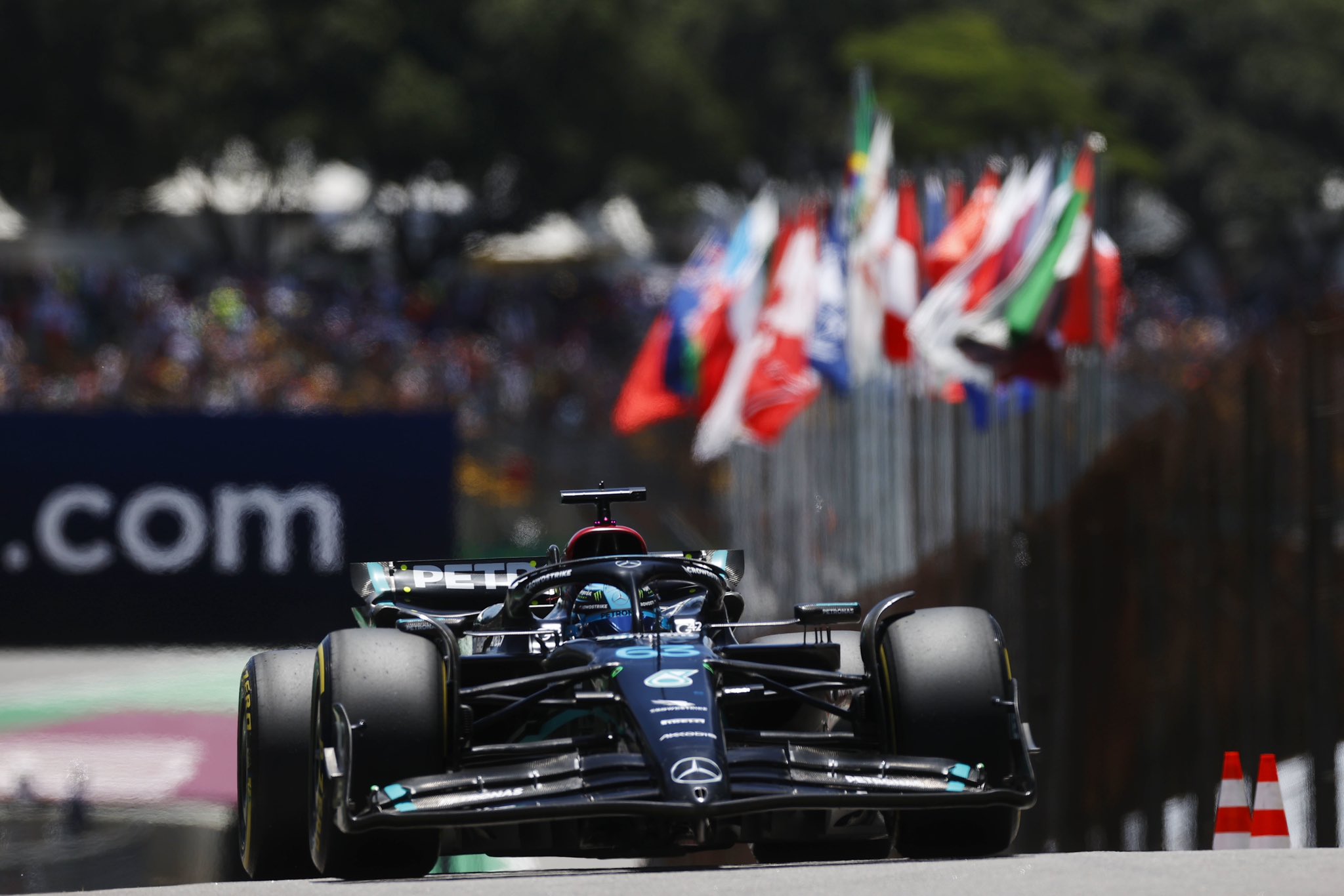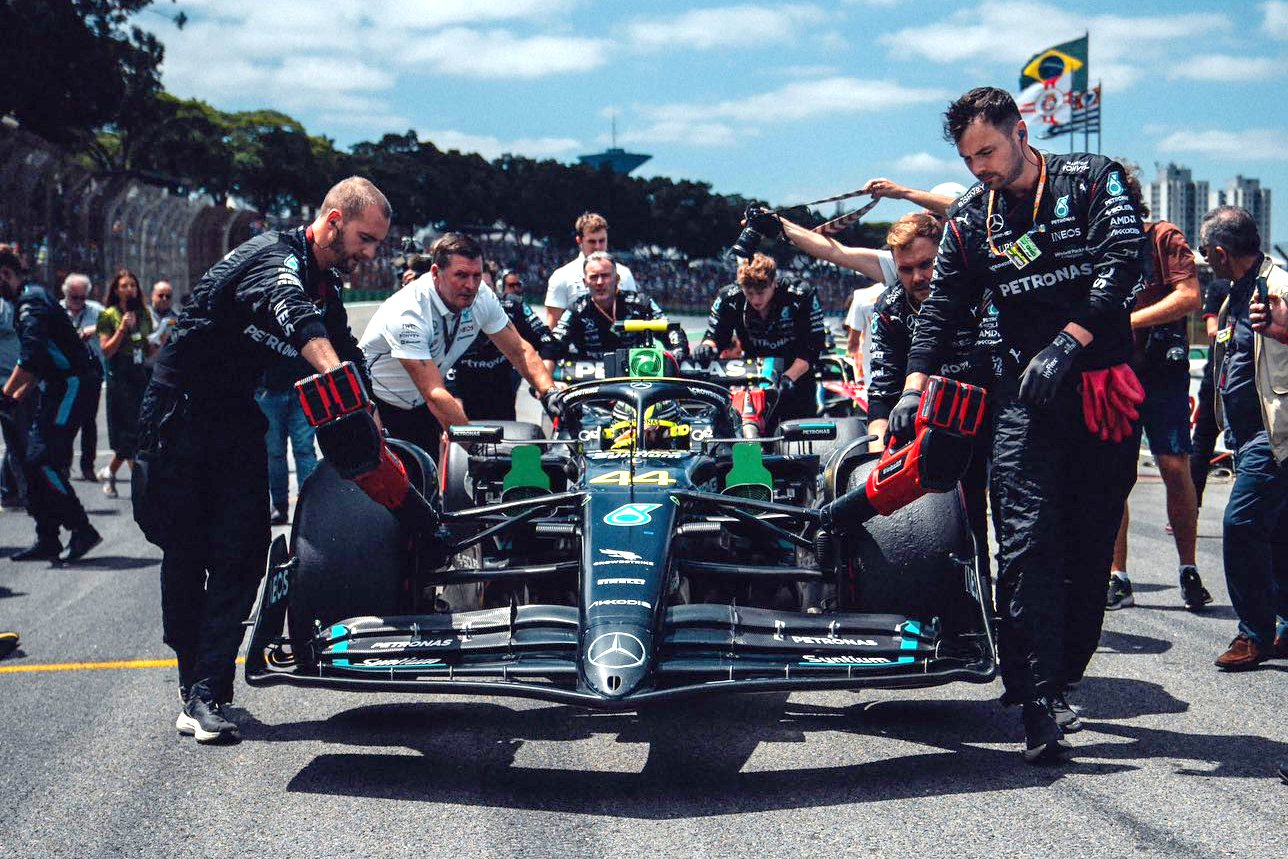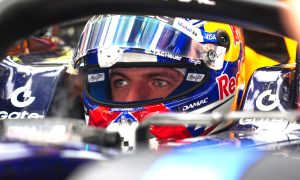
F1 world champion Damon Hill says Mercedes’ aero department is “missing a trick” and questions whether staff exit has led to the Brackley squad losing its way relative to Red Bull.
The introduction in 2014 of F1’s hybrid era opened a period of enduring domination by Mercedes, marked by the team’s extraordinary run of eight consecutive Constructors’ championships and seven Drivers’ titles.
But last year’s technical regulation overhaul and the introduction of ground effect aerodynamics halted Mercedes’ supremacy dead in its tracks, allowing Red Bull to pick up the baton to run in a league of its own.
From last year’s ill-inspired zero-sidepod concept to the array of upgrades implemented on its 2023 car, Mercedes has shown only subdued glimpses of it former self, notably in Brazil last year where George Russell delivered to the German outfit its only in the past two seasons.
Hill believes that Mercedes built its success primarily on the strength and reliability of its power unit, and is now paying the hefty price for relying so muchrelied on its biggest asset to the detriment of its aero programmes.
“My anxiety is this, which is that for a long time, Mercedes’ dominance really was down to their power unit,” Hill said.
“They had the best power unit for a very long time, and the aerodynamics were always slightly different to Red Bull’s.
“If you remember towards the end of the previous Formula 1 regulations, they persisted with their relatively flat-looking rake on the car, whereas Red Bull was absolutely huge,” added the Sky F1 consultant.
“They led the way and everyone started following Red Bull with this very high rake. It looked like a rat running along the car. It had a very high back.
“But Mercedes stuck persistently or doggedly with their [philosophy], they looked like they were running a different aero concept on their car in the previous regulations, and then along come a new set of regulations.
“What I’m saying is, is the Mercedes aero department missing a trick here? They’ve lost quite a few good aero people to other teams as well, over time.”

The introduction of a new floor design on its car at last month’s US Grand Prix delivered gains to Mercedes, with a buoyed Lewis Hamilton finishing runner to Max Verstappen in Austin and in Mexico City a week later.
But last weekend’s round of racing in Brazil was a disappointing affair for the Brackley troops, with Hamilton finishing a distant eighth at Interlagos while Russell’s efforts were cut short prematurely due to an engine issue.
Hill’s Sky F1 colleague Karun Chandhok reckons that Mercedes' inconsistent performance over the last three races is a clear indication that the team still doesn’t fully comprehend its W14 car.
“They need to understand as a group where the root of the problem is,” said Chandhok.
"They’ve had highs the last few races where they were fast, but let’s not forget they were disqualified in Austin.”
“You can’t compete for the championship if you have these ups and downs without clearly understanding why.

©Mercedes
“Now if they were saying, ‘We know we’re going to struggle here’ or ‘We know we’re going to be weak here, we’ll take it in stride,’ it would have been fine. But that doesn’t seem to be the case.
“They don’t seem to fully understand why the highs are the highs and why the lows are the lows. That is a concern that will still be present next year.”
In Chandhok’s view, McLaren have proven that it is now Red Bull’s closest rival.
“Since the upgrade in Austria, they have been at the front on every type of track, in every type of corner and in every weekend,” he added.
“Wet, dry, they were there. That gives the aerodynamics department confidence that the car is working.
“Mercedes doesn’t have that. This weekend they were slower than the AlphaTauris, Alpines, much slower than McLaren, Red Bull and Aston Martin. It’s just confusing.”
Keep up to date with all the F1 news via Facebook and Twitter







